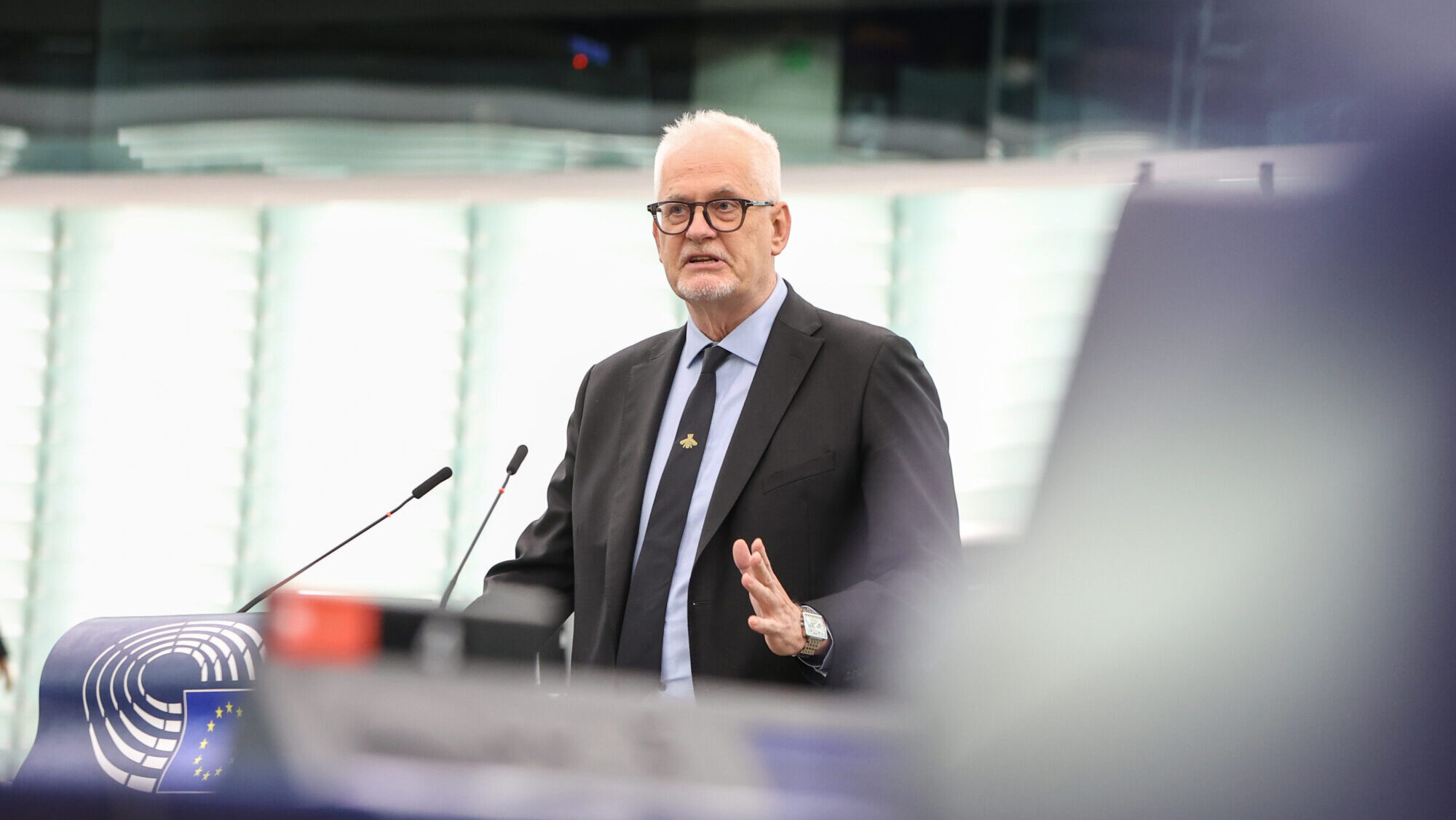
Finnish MEP Petri Sarvamaa, EPP
Photo: Frederic MARVAUX © European Union 2024 – Source : EP
The European Parliament on Thursday passed a harshly worded resolution threatening legal action against the EU Commission for its decision to unblock €10.2 billion in cohesion funds for Hungary last December.
With 345 votes in favour to 104 against (and 29 abstentions), MEPs easily passed the nonbinding resolution that “calls on the European Council [the governments of the 27 member states] to determine whether Hungary has committed serious and persistent breaches of EU values.” Despite its pretext, this resolution is rightly seen as an attempt by the EU to subject Hungary to the progressive agenda of the left-liberal majority in the European Parliament for whom ‘EU values’ equates to woke ideology on everything from LGBT rights to multiculturalism.
Prime Minister Viktor Orbán raised the ire of his detractors in December by securing the release of billions in European Commission funding earmarked for Hungary after he declined to use the Hungarian veto on commencing Ukrainian accession negotiations.
The resolution, proposed by Finnish EPP MEP Petri Sarvamaa, states that the Hungarian judicial reform package passed in May 2023—which the Commission said fulfils its requirements for reaching one of the EU’s ‘super milestones’—was not sufficiently scrutinised or open to input from the public. In addition, the text lists the familiar leftist complaints about deterioration of the ‘rule of law’—a concept misused by the EU to harass conservative governments—alleging human rights violations against “vulnerable groups,” lack of “academic freedom,” and even “environmental degradation.” .
The resolution calls on the Committee on Legal Affairs to
“take the necessary steps as soon as possible” to review the legality of the December release of funds, saying that “no payments should be made even if progress is made in one or more areas but deficiencies still persist in another.” [emphasis added]
In other words, until Hungary’s conservative government ceases being conservative, it should have no access to its own money held by the EU.
PM Orbán took to social media to lambast the vote: “Liberal MEPs attacked Hungary once again,” the premier wrote on X, formerly Twitter.
“They want to give money to Ukraine for 4 years, while the European elections are just 5 months away. They essentially want to strip people of their rights to make decisions on their future. What an anti-democratic position!”
Liberal MEP’s attacked Hungary once again in the @Europarl_EN yesterday. They want to give money to #Ukraine for 4 years, while the European elections are just 5 months away. They essentially want to strip people of their rights to make decisions on their future. What an…
— Orbán Viktor (@PM_ViktorOrban) January 18, 2024
Similarly Fidesz MEP Balázs Hidvéghi pointed the finger at a “Sorosista majority” in the Parliament calling the resolution “pure political blackmail.”
❌Today, another shameful resolution condemning Hungary has been adopted by the "Sorosista" majority in the European Parliament.
— FideszEP (@FideszEP) January 18, 2024
❌Today's resolution is yet more pure political blackmail. If anyone had any doubt as to the reason for this, yesterday's speech by @vonderleyen was… pic.twitter.com/E8iL55mYD7
In addition, the resolution echoes the Eurocrats’ fear of Viktor Orbán holding the European Council Presidency beginning in mid-2024 after the resignation of Charles Michel. This follows the June 2023 efforts of MEPs attempting to block Hungary from the rotating council presidency.
The European Council is led by both a permanent president (currently, Charles Michel), elected and appointed by members for a term of 2.5 years, and a different EU member state that changes every six months on a rotational basis. Hungary is set to start their time at the rotating presidency in July, just after the European elections. With Michel’s resignation, the sitting rotating president would automatically fill the position of permanent president as well, until a new one can be elected.
The latest resolution cites the importance of the council president’s role in initiating and driving EU legislation and “ensuring the continuity of the EU agenda.” It goes on to question whether the Hungarian government is fit to fulfil that role given its alleged “non-compliance” with the “values” of the European Union. It stops just short of explicitly advocating Article 7 proceedings—which would strip Hungary of its voting rights.
Instead, by calling on the Council to find “proper solutions to mitigate these risks as soon as possible,” the text reminds the Council that Parliament can take appropriate measures if such a solution is not found.
Last week, a cross-party coalition of 120 MEPs floated the option of removing Hungary’s voting rights. In response, a coalition of right-wing and populist MEPs made a vocal stand against the resolution and its attack on Hungarian democracy. Many wondered which country would be the next target of EU bullying, with Hidvéghi proclaiming that the EU was “digging its own grave.”
❗@Europarl_EN captured by the left, is digging the grave of the EU. Threats to suspend the voting rights of Hungary or any other Member State because we disagree on some issues is pure dictatorship. Wake up, Europe! #EPlenary #ukraine #Hungary #euco #ruleoflaw @EU_Commission pic.twitter.com/4IabubAcXa
— Hidvéghi Balázs (@BalazsHidveghi) January 17, 2024
In contrast to dissent from the conservative and nationalist ECR and ID blocs, the resolution was overwhelmingly backed by socialist, federalist, and centrist blocs within the Parliament, prompting anti-Hungary MEPs to rejoice on social media.
JUST NOW:
— Petri Sarvamaa (@petrisarvamaa) January 18, 2024
The @Europarl_EN has approved a joint resolution calling on the European Council and the Member States to take action and to determine whether HU has committed serious and persistent breaches of EU values under Article 7(2) TEU.
This is a significant development. 1/3 pic.twitter.com/wV7I7Iuokn
The matter will now be referred to member states to decide. with Slovakian PM Robert Fico already indicating this week that he will defend Hungary should its voting rights be threatened.
